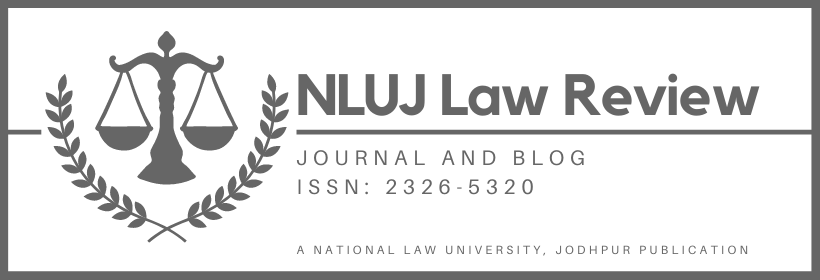“[T]o expect the Speaker to be out of politics altogether without the corresponding convention is perhaps contradictory expectations” – G.V. Mavalankar
The Speaker occupies the sixth position in the order of precedence in India. The Constitution of India (“Constitution”) has vested numerous powers in the hands of the Speaker. Besides being the moderator and having the responsibility to maintain the decorum of the House, the Speaker is conferred with certain quasi-judicial functions, which demand non-partisan decision making. Under Article 93 of the Constitution, members of the House have to, without delay, elect two persons to be the Speaker and Deputy Speaker, respectively. The same modus operandi is followed in all legislative assemblies (Article 178).
The anomaly arising herein is that though the Speaker is vested with functions that make it sine qua non for him to act in a non-partisan manner, the individual elected as Speaker has political affiliations. It is quite antithetical to the objective of neutrality, which is expected from a Speaker. How can a person associated with some party be expected to act in an unbiased manner? It is for everyone to see how the office of Speaker has always been a monopoly of the ruling party or coalition (¶ 7.17, 7.19). The Speaker is dependent on the support from the majoritarian party for continuance in the office as well as his reappointment. Per contra, any resolution for his removal (by any independent member or other than that of the ruling party) could also be effective only with the support of the majority party. Thus her/his position becomes quite susceptible to exploitation from the ruling party. Therefore, in effect, the mechanism which was enacted to keep a check upon the Speaker’s power has itself become the source of his biasness. Numerous instances have surfaced time and again, which stress the need for the legislature to revamp the existing constitutional regime in this regard. There have been various instances where the Speaker has adopted a partisan approach, for instance, in categorizing a bill (¶ 7,8) as ordinary or money bill, deciding petitions (¶ 6,7) seeking disqualification of members or ordering floor tests (¶ 5). However, the foundation from which these issues enunciate has received scant attention of the Indian scholarship. This is the issue on which the present blog primarily focuses.
Addressing the Core Predicament
On January 21, 2020, the Apex Court, while deciding upon a writ petition for withholding petitions for disqualifications against the Speaker of the legislative assembly of Manipur, made a resounding observation. The Supreme Court emphasized the need for the legislature to make a constitutional amendment, substituting the authority of the Speaker with a tribunal comprising judges as the deciding authority in matters of disqualification (¶ 30). The Court, herein, restricted its opinion to anti-defection law; however, this observation calls for more significant application.
Besides the Apex Court, the Law Commission (¶ 5.19.3) has also advocated for vesting the power to decide upon questions of disqualifications to some independent forum. A shortcoming of the suggestion rendered by the Law Commission was that they proposed to shift only the power of deciding disqualification petitions from the Speaker to the Governor or the President, as the case may be, without adequately addressing the core issue of neutrality. The discrepancy in the suggested method is attributable to the fact that the Governor being a representative of the Central Government, cannot be expected to be completely neutral [as seen here (¶ 26)]. Similarly, the President too is bound by the aid and advice of the Council of Ministers led by the Prime Minister, the de facto head of the Government. Further, the only independent forum being the Election Commission has only been given an advisory role. On the contrary, the suggestions rendered by the Election Commission (page 38) and National Committee to Review the Working of the Constitution (¶ 4.18.2) fared better in this regard as they shifted the onus of deciding the said petitions upon an autonomous body. However, the core issue of ensuring neutrality in the discharge of all functions by the Speaker remained unaddressed.
The entire deliberation around Speakers’ unsatisfactory exercise of power originates due to their non-partisan behaviour, which can be primarily attributed to their political affiliations. Therefore, instead of taking powers away from the Speaker, dedicated action must be directed towards ensuring neutrality. This would clear the air surrounding the arbitrary exercise of power by the Speaker.
The authors suggest a two-fold modus operandi to ensure the same. Firstly, the office of the Speaker should be held by a Retired Judge of the High Courts or the Supreme Court of India. Such a Judge would be from amongst the Judges who put forth their candidature for the post. In case more than one Judge presents their candidature, one of them must be voted to the office of the Speaker on receiving majority support in the House or Assembly, as the case may be. The votes should be cast anonymously to avoid any inevitable bias in the future. In the event of a deadlock, the President or the Governor, as the case may be, shall have the deciding vote.
Secondly, there must be a security of tenure to the elected Speaker, which might extend to the life of the House, to avoid any coercive action from the majoritarian party and thereby ensuring effective discharge of functions without any fear or favour. Any resolution for his removal must be on the grounds of performing any act in violation/derogation of his constitutionally vested functions. Such a resolution should be passed by half strength of the House and two-thirds of the members present and voting (instead of the simple majority presently required).
It must be noted that the suggestions proposed by the authors are limited to the appointment and removal of the Speaker. All the powers associated with the office remain unaltered. The effect of the recommended amendments would be beneficial for this constitutional office. It would ensure a non-bias decision making as the individual will have no inclinations within the House. Further, the office would unquestionably be held by a capable person. Such an individual would also be better suited to decide upon petitions seeking disqualifications or classification of a bill as ordinary or money bill, which involves the application of specific interpretative skills.
A Threat to Separation of Power?
The above-mentioned system of administering the House, despite several advantages, might be called into question on account of being seen as a threat to the doctrine of Separation of Power.. This intervention between the Legislature and Judiciary should instead be construed as a step to ensure the effective working of the legislature. P. Sathasivam J. noted that ‘till this principle of accountability is preserved there is no violation of separation of powers.’ (¶ 59) Furthermore, a strict separation of functions is neither possible nor desirable. (¶ 32) The temptation of post-retiral prospects might have a bearing upon judicial decision-making and thereby its independence. These issues can be addressed by answering two critical questions – can judges hold post-retirement positions? If so, then how keep the independence of the Judiciary intact?
At the outset, there is no explicit bar in the Constitution or any Statute on the judicial officers holding offices post-retirement. There are umpteen number of administrative as well as executive offices that are/were held by retired judges. Though one might say that such appointments have always been seen with a cynical viewpoint, there still exists a fair distinction between these appointments from that of the suggested methodology. The judges who will hold such office will not be nominated or appointed by the Government but would rather be among those presenting their candidature for the said office, thereby, avoiding the sole proprietary of the Government in matters of appointment.
The chance of prejudice that persists is the situation where the Government might persuade a judicial officer by promising to vote in his favour, in return for penning favourable decisions. This scenario can very well be avoided by mandating a cooling-off period of a minimum of 4 years. The said period would begin from the date of retirement. During this period, the judges would be barred from holding any post-retirement offices.
Concluding Remarks
Given the evident partisan behaviour of the Speakers presently, the fundamental need for neutrality in the office has been reduced to the legislative texts only. In order to ensure the neutrality of the office and ensure the discharge of functions in the manner they are expected to be, there is an ardent need for revamping the present position. Hence, the authors humbly recommend the implementation of a mechanism in lines of the one recommended above.
This article has been authored by Renuka Mishra and Avishek Mehrotra, students at Symbiosis Law School, Pune.



